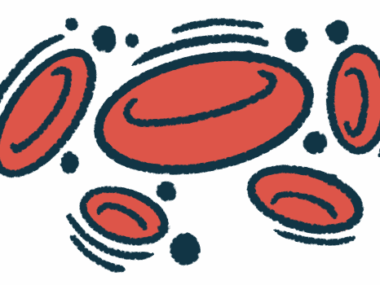Finding the right doctor to partner with in my PNH care
In choosing a provider, I'm seeking more than a medical expert
Written by |

Living with paroxysmal nocturnal hemoglobinuria (PNH) since 2017 has taught me that finding the right physician is as important as the treatment itself. Because PNH is rare, I need a doctor who is more than a medical expert — they must also be a partner in this unpredictable journey. Over the years, I’ve come to rely on a few key qualities when deciding if a physician is the right fit for me.
Specialized knowledge and experience: PNH isn’t a condition you can manage with general hematology alone. I look for a physician who stays current with evolving research and treatment options, including complement inhibitors and clinical trials. Experience with rare blood disorders matters, but so does a willingness to consult with national centers of excellence or collaborate with other specialists when necessary. It reassures me to know that my doctor not only understands the science but also follows new developments that could improve my quality of life.
Clear, compassionate communication: My appointments are about more than discussing lab results; they are conversations about how I’m really feeling. I need a doctor who explains complex topics in plain language, takes time to answer questions, and listens without rushing. Compassion shows in small gestures: making eye contact, remembering details about my children, and respecting that I’m the expert on how my body feels day to day. Good communication helps me leave each visit with a plan I can trust and understand.
Collaborative decision-making: PNH treatment is rarely one-size-fits-all. Whether we’re discussing medication schedules, side effects, the wide range of symptoms, or lifestyle changes, I want a physician who invites me into the decision-making process. Shared decisions — like adjusting infusion times or balancing work demands — help me stay engaged and empowered.
Accessibility and team support: Life with PNH can change overnight. I value a practice with a responsive support team, whether it’s a nurse coordinator who helps navigate insurance approvals or a staff member who quickly returns calls about sudden symptoms. Easy access to lab testing and infusion services also makes a difference. Knowing help is only a message or phone call away gives me peace of mind.
Respect for the whole person: Above all, I look for a physician who sees me as Shaquilla, not just a patient ID number. My life, my career, and my dreams are part of my health picture. A doctor who respects those realities helps me live fully — not just survive PNH.
Finding the right physician takes time, but it’s worth every step. If you’re searching for a specialist, resources like the Aplastic Anemia and MDS International Foundation can help you locate experts and connect with others who understand the path you’re on.
The best physician for PNH isn’t just skilled; they’re a true partner, helping me navigate each twist of this rare disease while keeping my life, and my hopes, at the center of care.
Note: PNH News is strictly a news and information website about the disease. It does not provide medical advice, diagnosis, or treatment. This content is not intended to be a substitute for professional medical advice, diagnosis, or treatment. Always seek the advice of your physician or other qualified health provider with any questions you may have regarding a medical condition. Never disregard professional medical advice or delay in seeking it because of something you have read on this website. The opinions expressed in this column are not those of PNH News or its parent company, Bionews, and are intended to spark discussion about issues pertaining to paroxysmal nocturnal hemoglobinuria.







Leave a comment
Fill in the required fields to post. Your email address will not be published.